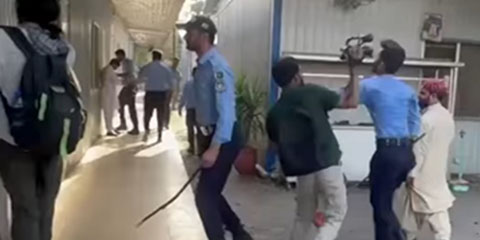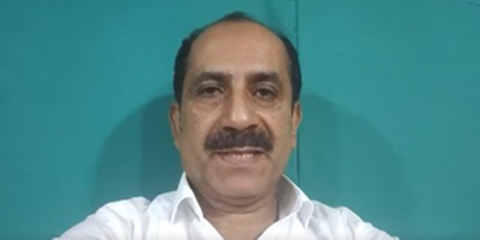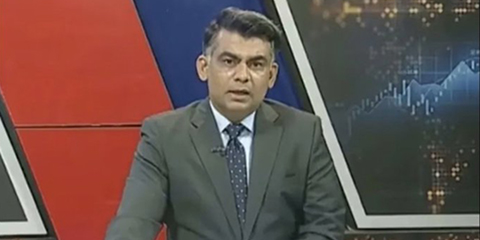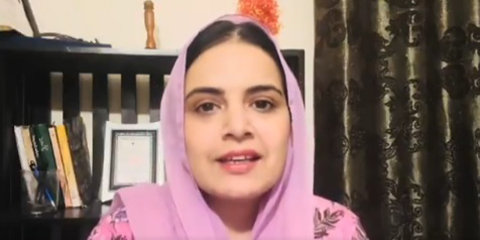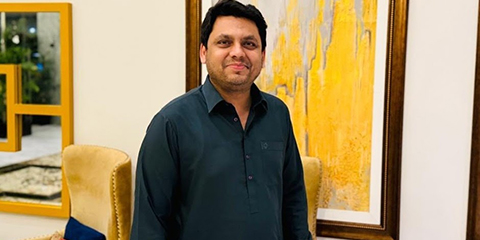Sahibzada Bahauddin: Out of the frying pan into the fire
JournalismPakistan.com | Published: 23 January 2018 | Myra Imran & Imran Naeem Ahmad
Join our WhatsApp channel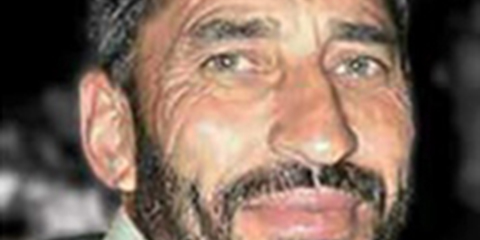
This article explores the experiences of Sahibzada Bahauddin, a journalist from Bajaur Agency, as he navigates the dangers of his profession. It highlights the plight of displaced journalists and their families in remote regions like Khyber Pakhtunkhwa.Summary
This story is one of 10 case studies highlighting the economic condition of slain journalists’ families and the displaced reporters. Journalist Myra Imran traveled to remote and high-risk districts in Khyber Pakhtunkhwa and FATA to interview family members, their relatives, displaced journalists, and office-bearers of press clubs and journalist unions. The stories are part of a field study report Surviving the Story, launched on January 8, 2018, a collaborative initiative of JournalismPakistan.com and Communications Research Strategies (CRS).
For journalist Sahibzada Bahauddin danger lurked everywhere in his native town of Bhai China in Bajaur Agency – threats from the Taliban, target killings, military operation, and airstrikes.
Whenever he headed out, he came across dead bodies on the streets. Once he tried moving a corpse with the help of his friends and its head fell down. “It was only then we realized the head had been chopped off,” Bahauddin recalls the gory sights back then.
He lost quite a few friends in targeted attacks. One was Muhammad Ibrahim, who was killed as they returned after interviewing Taliban spokesman Maulvi Umer. “Our homes, livestock, property, and businesses were all destroyed but no compensation was given to me or the people of this region,” says Bahauddin, 45, a father of seven.
The situation became so bad for this journalist who worked for Khabrain newspaper and Reuters he had to move out. “There was a lot of pressure on me from my tribe and family to leave because it had become too dangerous for me to live there.”
He and his colleagues were getting threats from the Taliban even for such petty things as not mentioning suicide attackers as Fidayeen in their stories.
So one August night in 2008 Bahauddin bid farewell to his home and left for Khaar, a peaceful town, which was under government control. His troubles only multiplied. He stayed there in an abandoned hospital building and continued to do reporting. The routine rattle of gunfire became deafening. “The kids got frightened. Each time I used to come back, I would find them crying.”
Bahauddin began to feel guilty, thinking he was putting his children’s lives in danger because of his reporting. In 2009, he moved to Peshawar where even more misery awaited.
He remembers those days as the most difficult time of his life. “We were cramped in a one-room house. I had little cash with which I bought some household stuff.” There were days the family had to skip meals because there was no food. No help was forthcoming. The newspaper he worked for looked the other way. An international organization he wrote to seeking assistance sent a team that gathered information about him but never returned. Some friends he knew occasionally lent help but that was not sufficient for survival.
“The financial impact of my displacement was enormous. I lost everything I had – my land, business, and livestock. Since I had to sneak out, I left all my belongings at home.”
To make matters worse for him, all his valuables and other stuff got stolen after he left.
Bahauddin had high expectations from journalist colleagues in Peshawar but all those were dashed when he arrived. “When they used to come to FATA we rolled out red carpets for them, however, we were not welcomed in Peshawar in the same manner,” he says ruefully.
However, he acknowledges “the Peshawar Press Club once gave Rs30,000 each to displaced journalists and the government Rs25,000 besides providing cooking oil, flour, and sugar under the IDP card I got made.”
Hard-pressed as he is, Bahauddin often wonders why is it that international news organizations pay more to journalists in bigger cities and far less to those reporting out of hard areas like his. He thinks that international and national media outlets only use journalists working in dangerous regions. “Our lives are not important to them. They do not train us; all they want are stories.”
Having suffered as an IDP, Bahauddin suggests establishing a housing scheme for displaced journalists and families of those killed. Add to this, education for their children and healthcare, and free psychological treatment to reporters in FATA.
Although peace has now returned to his native town, thanks to the military, Bahauddin has no intention of going back. “Just peace is not enough when the infrastructure is either destroyed or not developed. Also, if I go back my children’s education would get affected.”
Bahauddin adds sorrowfully: “I visit my hometown at times and stand at the spot where once stood my house. It is in rubbles. I love that rubble. I miss my life there, the green fields, the trees, and gardens.”
KEY POINTS:
- Sahibzada Bahauddin faced threats from the Taliban in his hometown.
- He was displaced due to escalating violence and had to move multiple times.
- Bahauddin lost his land, business, and livestock due to his displacement.
- He emphasizes the lack of support for journalists in dangerous regions.
- Bahauddin advocates for better housing and educational support for displaced families.




